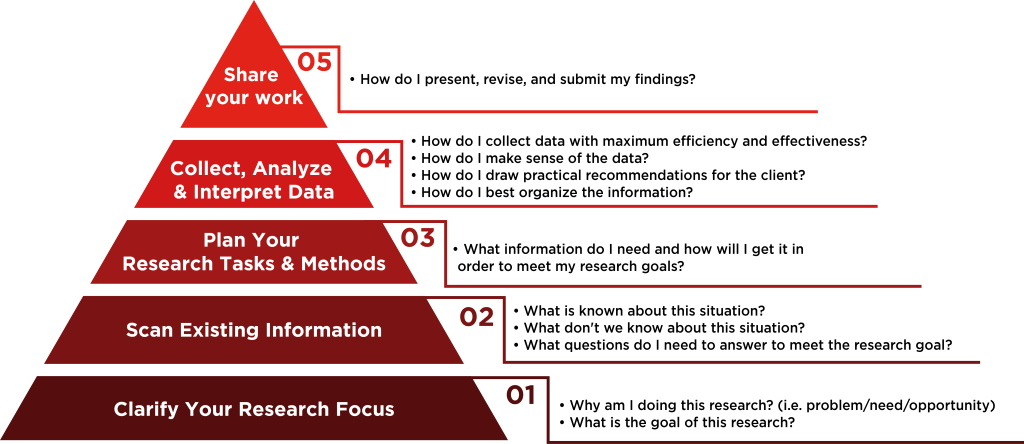Developing Your Research Framework
When a researcher submits a proposal for funding, it is expected that all aspects of the project will be assessed. Research design is the framework of research methods and techniques chosen by a researcher to ensure successful completion of the project. Clear articulation and justification of those selected methods could persuade a potential sponsor to fund the project.
While not all projects follow a perfect linear sequence, these are key project activities:
- Clarify your Research Focus and determine the goal of your research
- Scan Existing Information to identify previous research and/or gaps in the field
- Plan your Research Methods
- Collect, Analyze & Interpret Data
- Share your Findings

This dropdown contains the text of the above image
01. Clarify Your Research Focus
- Why am I doing this research? (i.e problem/need/opportunity)
- What is the goal of this research?
02. Scan Existing Information
- What is known about this situation?
- What don’t we know about this situation?
- What questions do I need to answer to meet the research goal?
03. Plan Your Research Tasks and Methods
- What information do I need and how will I get it in order to meet my research goals?
04. Collect, Analyze & Interpret Data
- How do I collect data with maximum efficiency and effectiveness?
- How do I make sense of the data?
- How do I draw practical recommendations for the client?
- How do I best organize the information?
05. Share Your Work
- How do I present, revise, and submit my findings?
Further Learning: Research Project Planning at Fanshawe
If you would like to do a deeper dive into this topic, there is a module called Research Project Planning for Beginners in Fanshawelearns.
This and other resources can be found in the CRI Research Playlist.
If you are not a college employee (e.g. a student who has been hired by CRI), you may not be able to access this content. Contact CRI for assistance.

